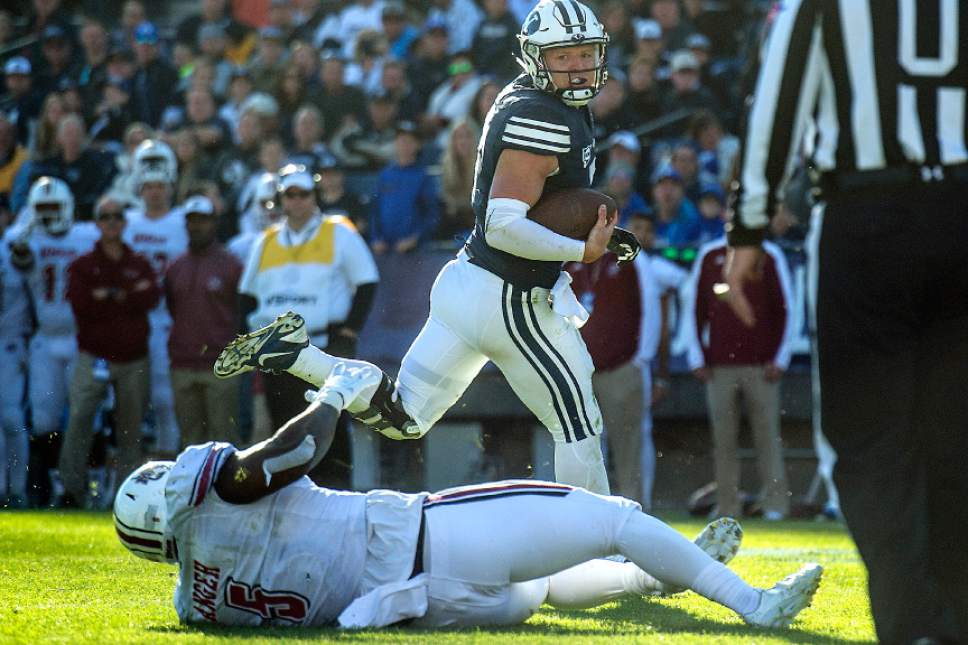This is an archived article that was published on sltrib.com in 2017, and information in the article may be outdated. It is provided only for personal research purposes and may not be reprinted.
Did you know that football players at BYU are now considered employees of the private school owned and operated by The Church of Jesus Christ of Latter-day Saints?
In between college football Signing Day, the basketball showdown with No. 1-ranked Gonzaga, the sweep of No. 2 UCLA by No. 4 BYU in men's volleyball and former Cougar linebacker Kyle Van Noy helping New England come from behind to beat Atlanta in overtime in Super Bowl LI, an interesting news item was written by ESPN legal analyst Lester Munson on Friday that could affect BYU.
He reported that the top lawyer at the National Labor Relations Board has issued an official opinion that players at the 17 private college that compete in the Football Bowl Subdivision (FBS) are employees of their schools.
The 17 schools that could be affected by the decision, in alphabetical order, are Baylor, Boston College, BYU, Duke, Miami, Northwestern, Notre Dame, Rice, Southern California, SMU, Stanford, Syracuse, TCU, Tulane, Tulsa, Vanderbilt and Wake Forest.
The ruling expands a 2014 ruling by NLRB regional director Peter Ohr that Northwestern football players are employees. The latest ruling, by NLRB general counsel Richard Griffin, only affects football teams because the original ruling only dealt with football at Northwestern.
Basically, the ruling means BYU football players have "new rights and leverage" if they want to form a union, for example, and are allowed to "engage in concerted activities for the purpose of mutual aid and protection."
Per the ruling, BYU (or any of the other 16 schools) cannot threaten to pull the players' scholarships or interfere in any way if the players join together to seek changes. Potential changes, the ESPN article surmises, could be in the way practices are scheduled, or ran in regards to contact drills.
Schools that stand in the way of the players attempting to establish a voice could potentially face penalties and sanctions under the National Labor Relations Act.
Potentially, the ruling could clear the way for players at private schools to share in the profits produced by their schools in college football.
Could it happen at BYU?
Possibly, but in nine seasons of covering BYU football, I've never heard a single player complain about his working conditions, practice schedule, excessive contact in practice or anything similar.
Recently, I have heard several players praise new coach Kalani Sitake for the way he has come in and gone to bat for players to get them more amenities in the locker room, more swag, more academic help, etc.
And he did have those comfy leather couches put in the BYU football offices lobby, which everyone seems to enjoy.



